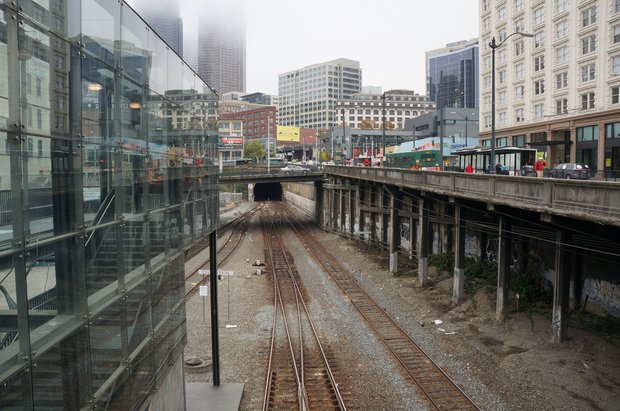
By CURTIS TATE
MCCLATCHY WASHINGON BUREAU April 9, 2014
WASHINGTON, D.C. – Emergency response officials told a Senate subcommittee Wednesday, April 9, that big cities and small towns alike are unprepared for a disaster on the scale of an oil train derailment and fire last year in Quebec that destroyed part of a town and killed 47 people.
The hearing was only the second on Capitol Hill in recent weeks that sought the perspective of local officials. The federal government has regulatory authority over rail shipments, but the burden of emergency response ultimately falls on local agencies.
The specter of a large-scale crude oil fire and spill has hung over communities across the country since July’s crash in Lac-Megantic, Quebec, where firefighters were simply outmatched by the scale and ferocity of the blaze.
“We can handle everyday emergencies,” said Timothy Pellerin, the fire chief of Rangeley, Maine, whose department assisted in the Quebec derailment. “We’re not prepared for a major disaster like this.”
Urban fire departments may have more resources and personnel, but the scale of the threat is a challenge for them, too.
Barb Graff, director of the Seattle Office of Emergency Management, said three loaded crude oil trains a week pass through the city, but that the frequency could increase to three per day when refineries are able to receive them.
“There’s an imbalance when we increase the hazard but we don’t increase the ability of the local community to deal with that hazard,” Graff testified.
The hearing in the Senate Appropriations Subcommittee on Transportation, Housing and Urban Development and Related Agencies, was led by Sens. Patty Murray, D-Wash., and Susan Collins, R-Maine. Crude oil shipments not only cross both states in trains, they also cross the border into Canada on North America’s virtually seamless rail network.
In Western Washington, BNSF trains have been hauling crude to the BP Cherry Point refinery on the main line through Bellingham and Ferndale since December 2013. The smaller Phillips 66 refinery to the south expects to begin receiving oil shipments by the end of 2014.
The Tesoro refinery in Anacortes has been getting crude oil by rail since September 2012, and the Anacortes Shell refinery is planning a crude oil rail terminal as well.
Murray said the shipments in Washington state are expected to triple to 55 million barrels this year, and that’s “only the tip of the iceberg.”
CROSS-BORDER PROBLEMS
Pellerin’s department was one of seven in Maine to assist in Lac-Megantic. He testified that crossing the border into Canada, he could see the plumes of smoke 30 miles away.
They were confronted by multiple problems on arrival. He testified that his radios were not compatible with Canadian frequencies, nor were fire hose couplings in sync. And the Maine firefighters needed an interpreter because their Quebec colleagues spoke only French.
Pellerin said 8,000 gallons of firefighting foam had to be trucked in from a refinery in Toronto, which took several hours.
Neither the railroad nor the oil companies involved in the derailment had a disaster plan, he said. He also said he learned only two weeks ago that the crude oil in the tank cars had been improperly identified.
Pellerin said three railroad representatives arrived in Lac-Megantic on the day of the derailment, took some pictures and left. The company filed for bankruptcy and was sold in December.
“They need to be held responsible for it,” he testified.
PRESSURE ON BNSF
Graff said regional emergency managers met with representatives of BNSF Railway recently to discuss the impact of crude oil shipments in Washington state. BNSF, based in Fort Worth, Texas, is the nation’s largest hauler of crude oil in trains and operates routes through Washington state’s major population centers.
Seattle Mayor Ed Murray signed a resolution last month that presses railroads to disclose the volume, frequency and contents of shipments. Railroads are not currently required to do so.
The resolution also calls for an “aggressive” phase-out of older model tank cars known as DOT-111s, which were known to be vulnerable to punctures and ruptures in derailments well before they were pressed into service hauling crude oil and ethanol.
When asked when his department would finish new regulations for tank cars, Transportation Secretary Anthony Foxx told the panel, “We are not going to wait until 2015,” but wouldn’t commit to a specific date. The pace of the rulemaking has frustrated lawmakers on Capitol Hill, as well as state and local officials.
Ed Murray said lawmakers would continue to press the department to move swiftly.
“We certainly are not dropping this topic,” he said. “This is an issue that has to be addressed.”

